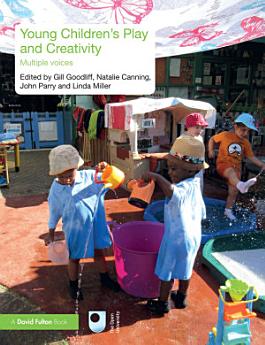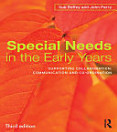Young Children's Play and Creativity: Multiple Voices
About this ebook
Divided into two parts, Part I is written by researchers and academics and explores key themes such as creative meaning making, listening to children’s voices, risk and spaces, children’s rights, play and technology. Part II is authored by Early Childhood professionals and reveals how practitioners have responded to the issues surrounding play and creativity. Each chapter is contextualised by an introduction to highlight the key points and a list of follow-up questions is also included to encourage reflection and debate.
Drawing on the wide-ranging writing of academics, practitioners and researchers, this book is an invaluable resource for students, practitioners and all those who are interested in the essence of play and creativity, what it means for children, and the far-reaching benefits for their well-being, learning and development.
Ratings and reviews
About the author
Gill Goodliff is a Senior Lecturer in Education and Programme Leader for Early Years at The Open University. She has a background in social work with young children and families, primarily in the voluntary sector, and has extensive experience of teaching practitioners. She represents The Open University at the Early Childhood Studies Degree Network.
Natalie Canning is a Senior Lecturer in Education, Early Years at The Open University. Her background is in playwork and social work, particularly in supporting children to explore personal, social and emotional issues through play.
John Parry is a Lecturer in Education at The Open University, where he has written and chaired courses on inclusion, primary and early years practice. He has a background of extensive work experience in the early years sector, primarily as a teacher and co-ordinator of educational support services for pre-school children.
Linda Miller is Emeritus Professor, Early Years at The Open University. She has worked both with and for young children throughout her professional life as a practitioner and teacher/practitioner educator.








